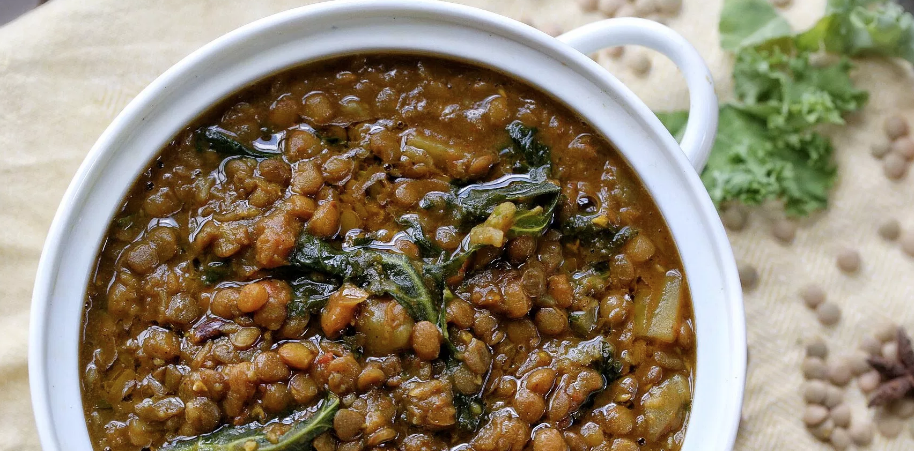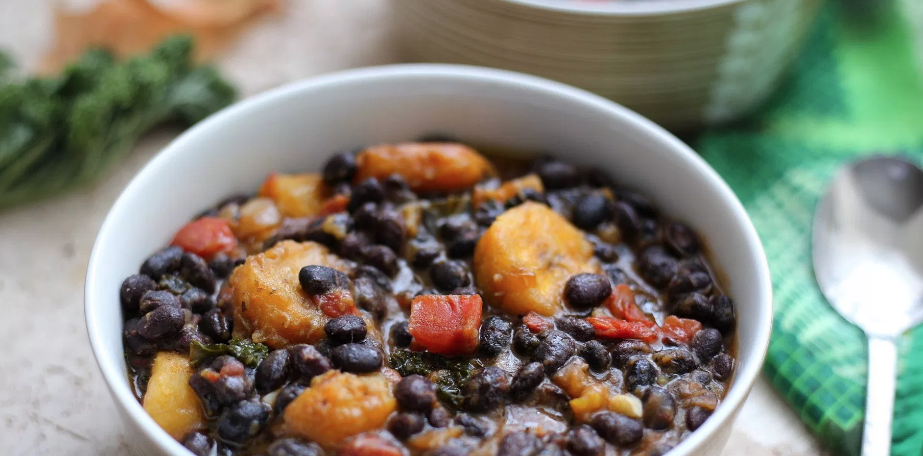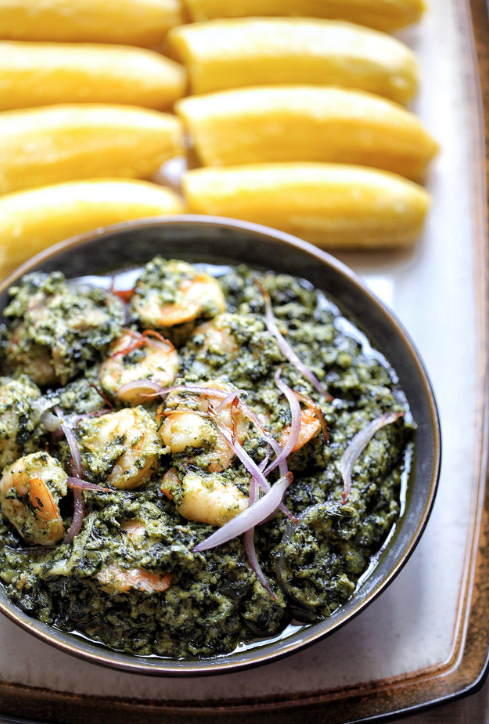Elsie Kriz is a culinary artist in Nashville, specializing in the unique flavors of Cameroonian cuisine and West African food. In her blog, Afrovitalityeats, she shares eye-catching dishes that entice both the eyes and the mouth without diminishing the health benefits of a balanced plate. She believes that food is even better with friends to share it with. We recently talked with Elsie to learn more.
Q&A with Elsie Kriz
Oldways: What is your most vivid food memory from growing up? And how did community play a role in meal preparation?
Elsie Kriz: There are several food memories that still shape my cooking today. One of the most vivid is accompanying my mother to the farm. We grew most of our vegetables and always had a bounty to last until the next planting season. I was never a fan of the planting season, but come time to harvest, we all were more than eager to help. After an early start of harvesting corn, the moment we return home we will sit around a three-stone fireplace. You get to roast only from the sack you carried from the farm. Fire roasted corn on the cob will always be my favorite.
Growing up we usually had a monthly Sunday gathering called “Njangi.” We would come together for some amazing food, drinks and music. When my mother was the host, we all were blind to the workload because we were too excited about all the festive spirit around us. My mother, together with my aunts, would be responsible for the food, while my dad and uncles handled the drinks. I will always remember those days.
OW: I know you work as a pharmacist; what inspired you to start Afrovitalityeats and to teach cooking? Do these two sides of your life ever connect in unexpected ways?
EK: My concept with Afrovitalityeats is to recreate those meals I grew up enjoying. Contrary to what some believe, you can create those flavors with what you have and by making simple substitutes. There are some like me who want those childhood staples on their dinner tables but are hindered by the lack of some traditional ingredients. With Afrovitalityeats we use what we must create to develop those flavors.
As a child, diseases like diabetes and hypertension were unheard of. Nowadays unfortunately, we do have to worry because our diet plays a key role. Being a pharmacist and also working towards becoming a diabetes educator, Afrovitalityeats is definitely the channel through which I can make an impact.
OW: How would you describe Cameroonian cuisine to those who aren’t familiar with it? What are some of your ingredients that you feel are difficult to access in the US?
EK: Our cuisine is so rich and diverse, full of wonderful, bold, and somewhat unique flavors. This is not just a result of colonization, but our climate. It is not unusual to find French baguettes or crepes in the economic capital of Cameroon, Douala. Peppers, tomatoes, cassava, and corn were introduced by the Portuguese. With these, our meals typically include a sauce or soup served with grains like rice or millet. Fufu, a dough made from corn and root vegetables like cassava, is also used to enjoy these soups and sauces.
Most of the fresh herbs like basil, parsley, leeks, onions, and more are available. Indigenous spices like Njangsa seeds and Egusi seeds, used not only for their unique, nutty flavor, but also to thicken soups, are hard to find. When I do find them, they are much more expensive for obvious reasons. One of my good friends in Cameroon, bless her heart, ensures I always have a pantry full of spices from home.
OW: Can you give us a few examples of how you’ve innovated or adapted Cameroonian flavors and techniques to what you have to work with in your current hometown of Nashville?
EK: One of the first things I did after relocating was to find local international markets. They are likely to have some of what I am familiar with. With the availability of plantains, cassava, African sweet potatoes, and cocoyams I had what I needed. I may not have plantain leaves to cook some of our traditional dishes like koki beans (black eyed peas pudding), but banana leaves are available and work just as good. If I have the main ingredients, it’s all fair game in the kitchen.
OW: In our A Taste of African Heritage class series, we start off talking to our participants about the importance of spices and herbs in flavoring our food. Do you have a favorite spice or spice blend these days? Can you give us some examples of dishes that you use them in?
EK: It really is hard to choose a favorite spice or spice blend because these spices all work so well together to achieve a common goal: a delectable plate of food. If I must choose I will have to go with the “Suya spice blend.” Suya is a very popular street food in Cameroon. It’s usually beef or chicken marinated and charcoal grilled. You can’t go home and not stop at your favorite suya spot. Some hold their suya spice blend recipe under lock and key; it’s that serious. This spice blend can be used on not only meats but vegetables too. Toss a teaspoon or two on your favorite baked sweet potato fries. Marinate your tofu before baking. Give that Friday, in-home movie night popcorn bowl a little upgrade. Suya is my all-time favorite if I must choose.
OW: Do you have any valuable tips for those who are trying to eat a more plant-based diet?
EK: Some may find it daunting, but it really boils down to your desire and reasons for making the ultimate decision. When I think back to my childhood, beef, chicken, and pork were reserved for special occasions: Christmas, New Year’s, birthdays, and other special days. They were expensive, and we couldn’t afford them. Soups and vegetable sauces accompanied with plantains, fufu, and other starches were the usual. Growing up we ate what was available; we had vegan meals and thought nothing of it.
Johnisha Levi, former African Heritage & Health Program Manager









